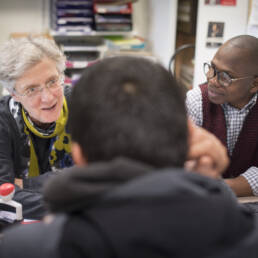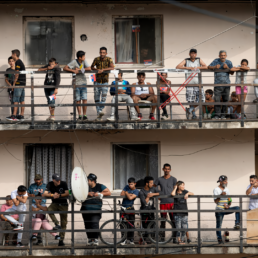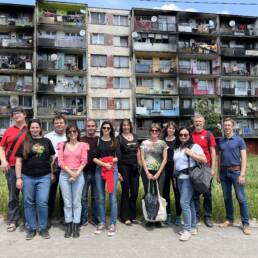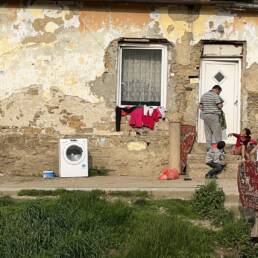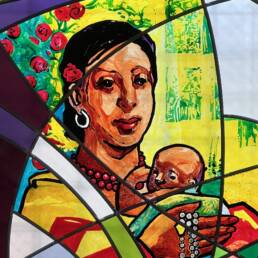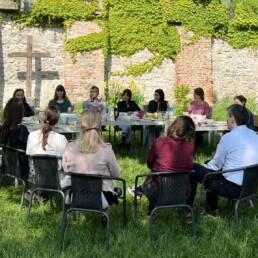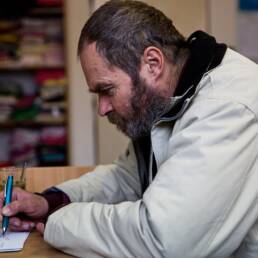Author
Veronica Lope Fontagne
Member of the European Parliament
Our citizens are Europe’s most valuable resource and therefore they should always be at the center of our policies. That is why the EU promotes a kind of growth that is linked to the general improvement of well-being, with special attention to promoting economic and social cohesion.
Nevertheless, due to the economic and financial crisis that hit us and to its negative effects on families all over Europe, we have reflected on some of the EU social policy aspects.
A coordinated and efficient decision-making process was made extremely difficult by the lack of a true economic, fiscal and monetary common policy, and by a fragile labour market that proved too rigid to adapt to reality. This situation caused the loss of a good part of the industrial capacity in the region, which resulted in higher unemployment rates and more acute poverty risk.
Therefore, the priority must be to move the European integration forward. That would allow us to be more prepared, both economically and socially, for the crises that might come in the future.
We must be more aware of social aspects. Although is it true that economic growth is necessary to improve social conditions, it is also true that economic growth will never be sustainable if it does not integrate the social aspects. During this parliament, we have particularly focused on this last point.
Jean Claude Juncker’s wish for Europe to be ‘triple-A on social issues’, as he expressed in 2014, was not just empty words. His words were followed by actions.
A €300,000 million package for public and private investment to generate employment was proposed. The Youth Employment Initiative has made important contributions to remedy a dramatic situation. The social vision within the European Semester procedures has increased year after year. A new capacity building agenda was approved, to improve European competitiveness and develop human resources. The European Accesibility Act was passed, that will improve everyday life for people living with disabilities. Finally, the European Pillar of Social Rights was approved and it should serve as a guide for social policies to be established at the national and European levels.
Without a doubt, during this parliament we have made great progress but much more needs to be done. We must continue working on consolidating these achievements and to make social policies a reality that benefits those groups in our society that need it the most.
The European Social Fund Plus
Often the efforts have focused on the citizens who can be more easily reached and reintegrated into the labour market. I believe that we need to change this focus to reach out to the most vulnerable groups because this would be the most effective way to guarantee their integration into society. This has been my goal as rapporteur of the European Social Fund Plus (ESF+), a legislation that received the support of most political groups, as citizens’ interests were privileged over political differences. As a result, we avoided the reduction of resources for the main European instrument to support education and training, labour and social inclusion. These resources will focus on active policies that ensure equal opportunities and guarantee access to life-long education, from early childhood to adulthood, while promoting capacities that respond to the labour market needs.
The youth, our future, will keep playing a main role. We cannot allow the high youth unemployment rates to happen again. For that reason the Youth Employment Initiative (YEI) has been integrated into the ESF+ from its previous status as an instrument off-budget.
The funds for social inclusion and fighting poverty were increased to 27%, including €5,900 million for the creation of a Child Guarantee as a dedicated instrument to fight against child poverty and the vicious cycle it generates. An additional 3% is dedicated to the fight against material deprivation and basic nutrition. Extreme poverty exists in every country. As co-president of the inter-group on the fight against extreme poverty – which I hope will continue during the next parliament – we have raised awareness on this problem. One of our main goals has been giving a voice to people living in poverty. Their experiences are most important for us to learn about the causes behind poverty in order to put a remedy in place, and to learn about their needs and their ideas to improve their everyday situation.
If we want to achieve sustainable and inclusive growth we cannot leave anyone behind. We must be capable of reaching out to the most vulnerable, and to those further away from the labour market. We must include groups such as the Roma community, people living in poverty or with disabilities, the young, the long-term unemployed, and the senior citizen workers. A strong and united Europe needs to protect the underprivileged and, although we are on the right path, a lot remains to be done.
About the author
Verónica Lope Fontagné was born in Caudéran, France, on 1 February 1952. She is a lawyer and a Spanish politician. She is a Member of the European Parliament and has been co-president of the intergroup for the fight against extreme poverty and member of the Committee of Employment and Social Affairs since 2009 to date.


